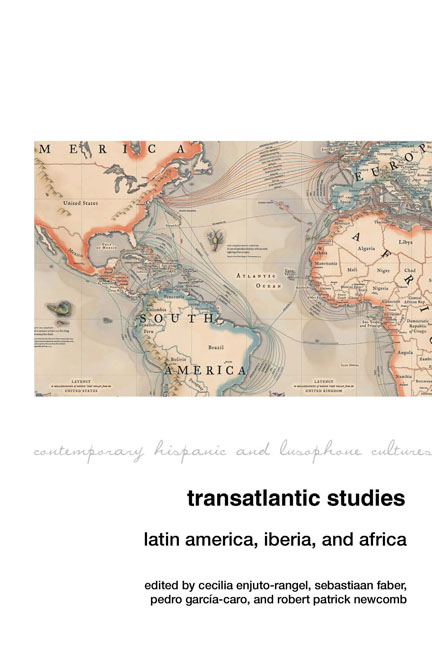Book contents
- Frontmatter
- Contents
- Introduction: Transatlantic Studies: Staking Out the Field
- Transatlantic Methodologies
- Transatlantic Linguistic Debates
- Transatlantic Displacement
- Transatlantic Memory
- Transatlantic Postcolonial Affinities
- Transatlantic Influence
- Epilogue: The Futureâif There Is OneâIs Transatlantic
- Index
20 - The Exile as Disinherited: Pere Calders in Mexico
- Frontmatter
- Contents
- Introduction: Transatlantic Studies: Staking Out the Field
- Transatlantic Methodologies
- Transatlantic Linguistic Debates
- Transatlantic Displacement
- Transatlantic Memory
- Transatlantic Postcolonial Affinities
- Transatlantic Influence
- Epilogue: The Futureâif There Is OneâIs Transatlantic
- Index
Summary
The experience of mass exile has marked Spain since 1492. Muslims, Jews, Protestants, communists, socialists, and republicans were all driven abroad at different times in Spain's history. In the apposite words of historian Henry Kamen, exile had become “the spectre that haunted Spain’s cultural destiny” (2007: 4). In a way, Kamen's words affirm Fernand Braudel’s teachings; namely, that every social reality is a spatial reality (2007: 115). In fact, Mari Paz Balibrea situates exile in twentieth-century Spain within the vast spectrum of the history of the defeated (2007: 11). The exiles, Sebastiaan Faber points out, “had specifically defined themselves as representatives of Spain's repressed historical memory” (2002: 38). What are, then, some of the spatial and social realities that the exile must face, specifically those forced into exile because of a political crisis? Michael Ugarte, for instance, has observed that the writer in exile must confront a reality that involves the “shifting ground” both from “one nation to another” and “from one language to another” (1989: 226).
During the Spanish Civil War (1936–39), Catalonia saw many of its writers and intellectuals leave Spain for Latin America and the Caribbean (mainly to Mexico, Chile, and the Dominican Republic). Among them was Pere Calders. In 1937, he enlisted as a volunteer in the army of the Republic, and was appointed to the role of cartographer at the rearguard of Teruel. With the fall of the Republic, he was taken to the concentration camp of Prats de Mollo. At the end of the war, in 1939, Calders went into exile in Mexico, a country where he went on to live for 23 years. In exile, he encountered a different reality that often became an important aspect of his literary production, something clearly seen in his short novel Aquí descansa Nevares (1967). In this novel Calders expresses a literary process suggested by Ugarte, namely that “exile literature has to do with crossings—not only physical or geographical, but conceptual” (1989: 226). Indeed, to deal with exile is at once to deal with many places as well as disciplines (Ugarte 1989: 226).
- Type
- Chapter
- Information
- Transatlantic StudiesLatin America, Iberia, and Africa, pp. 240 - 249Publisher: Liverpool University PressPrint publication year: 2019



